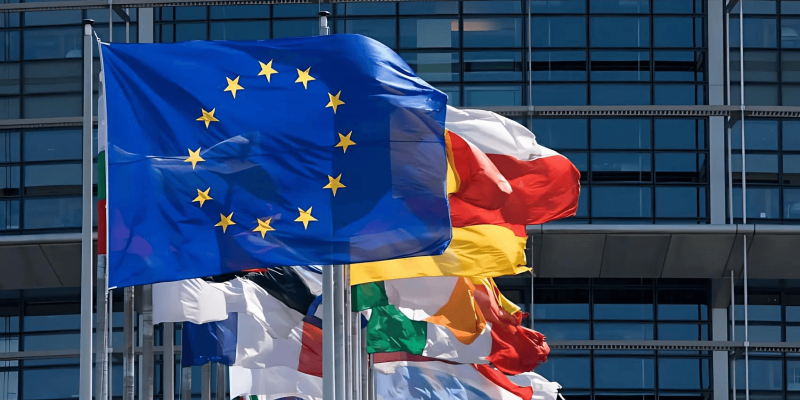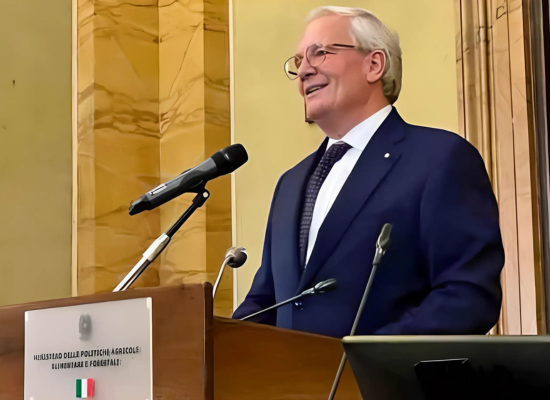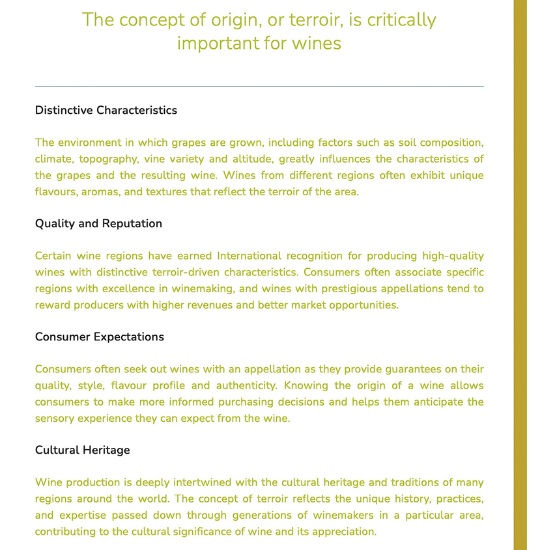Educating Sommeliers Worldwide.
By Beverage Trade Network

In a significant move to support the European wine industry, the European Commission has launched a High-Level Group on Wine Policy to address the growing challenges facing the sector. The group's first meeting, held on September 11, brought together representatives from the European Commission, EU member states, and industry stakeholders, including the European Federation of Origin Wines (EFOW), to chart a course for the future of wine production across Europe.

The formation of this High-Level Group underscores the urgency of addressing the critical issues affecting wine producers, particularly those tied to Protected Designation of Origin (PDO) and Protected Geographical Indication (PGI) wines, which account for nearly 80% of the EU’s vineyard area. As wine consumption continues to decline, markets shift, and climate change impacts production, the European wine industry stands at a crossroads, requiring swift, coordinated policy responses.
A primary concern highlighted in the discussions is the ongoing decline in European wine consumption. Over the past decade, consumers in several EU countries have reduced their wine intake, shifting towards occasional indulgence rather than regular consumption. Compounding this trend, public health policies in some member states have targeted alcohol consumption, further pressuring the wine sector. The Commission's projections indicate that this downward trajectory will likely continue, posing a long-term risk to the viability of many wineries.
Meanwhile, the demand for red wines and mid-range still wines has dropped, leaving producers grappling with shifting consumer preferences. Younger generations, in particular, have shown increasing interest in alternative beverages, including low-alcohol or no-alcohol products, which have not yet gained widespread acceptance in the wine sector. The rise of competition from other alcoholic drinks, which have maintained stable or growing sales, adds to the complex landscape European winemakers face.
Climate change presents another formidable challenge. Extreme weather events, such as unexpected rainfall, prolonged droughts, and erratic temperature swings, have destabilized wine production in many regions. Viticulture, being highly sensitive to even minor climatic shifts, now faces unpredictable yields and heightened production costs. Adaptation strategies are urgently needed to ensure that Europe’s celebrated wine regions can continue producing high-quality wines under evolving environmental conditions.
EFOW, representing the EU’s wine appellations, outlined a comprehensive strategy during the meeting to ensure the resilience and competitiveness of the wine industry. Riccardo Ricci Curbastro, president of EFOW and a leading figure in sustainable viticulture, emphasized the importance of fostering constructive dialogue among stakeholders. "It is crucial, particularly in this new legislative cycle, to promote an atmosphere of constructive dialogue and avoid the polarization that has previously dominated debates in the wine industry," Curbastro stated.

Image: Riccardo Ricci Curbastro
1. Targeted Market Support: EFOW advocates for specific interventions to support wine producers facing market difficulties. Conditional market support could help struggling wineries maintain competitiveness and adapt to current challenges.
2. Vineyard Management Flexibility: EFOW calls for more flexibility in vineyard planting authorizations, enabling producers to better align viticulture potential with market demands while maintaining sustainability.
3. Enhanced Promotion and Market Diversification: The federation stressed the importance of improving promotional tools and diversifying export markets. A strengthened EU trade strategy could unlock new commercial opportunities for European wine producers, especially in the face of geopolitical tensions in key export regions such as the U.S. and China.
4. Sustainability: While advocating for sustainable practices, EFOW encourages voluntary adoption rather than mandatory requirements. The focus should be on environmental protection and social responsibility, ensuring the industry’s long-term viability while adapting to climate pressures.
5. Strict Labeling Standards: Clear, accurate labeling that informs consumers about the origin and production methods of wines is crucial for maintaining consumer trust and protecting the integrity of PDO and PGI wines.

EFOW’s perspective on terroir; source: EFOW
As the High-Level Group on Wine Policy continues its work, the future of the European wine industry will depend on the strategies developed in these discussions. The collaboration between EU institutions, member states, and industry stakeholders like EFOW will be essential in crafting policies that balance tradition with innovation and sustainability.
The stakes are particularly high for wine-producing regions that rely on viticulture as a central part of their rural economies. By fostering policies that support sustainable growth, the EU has the potential to safeguard not only its wine heritage but also the economic vitality of its rural communities.
[[relatedPurchasesItems-61]]
For sommeliers, these developments signal a shifting landscape in European wine. As the industry adapts to changing consumer preferences, sommeliers will need to stay informed about emerging trends, particularly in sustainable and low-alcohol wines. Additionally, stricter labeling standards and evolving trade strategies could introduce new opportunities for sourcing and presenting wines that reflect the diverse and dynamic character of European viticulture.
The future of European wine, though fraught with challenges, presents unique opportunities for innovation, adaptation, and renewed consumer engagement. As the industry navigates this transition, sommeliers will play a vital role in guiding consumers through these changes, highlighting the rich variety of wines that continue to emerge from Europe’s storied regions.
Header Image Source: EFOW
Also Read:
The Rising Importance of Regenerative Viticulture: Certification and a Case Study
Let's Grow Wine - Instagram Marketing Way
Sommeliers Choice Awards 2025 Announces First Round of Esteemed Judges